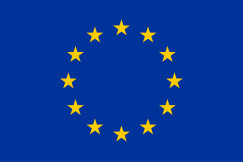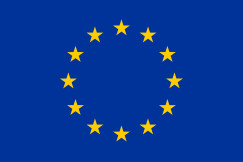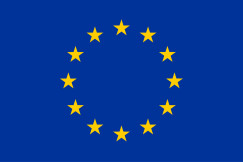Legislation
27 March 2025
Transparency regulation
Legislation
27 March 2025
1. Healthy, balanced and sustainable diets for all European consumers
2. Prevention and reduction of food loss and waste
3. A climate - neutral food chain in Europe by 2050
+4 more
Login / create an account to be able to react
-
5

Regulation (EU) 2019/1381 on the transparency and sustainability of the EU risk assessment in the food chain aims at increasing the transparency of the EU risk assessment in the food chain.
Editorial team
European Commission - DG SANTE
Topics
EU-27
EU Institutions
-
CoC aspirational objectives
-
-
1. Healthy, balanced and sustainable diets for all European consumers
-
2. Prevention and reduction of food loss and waste
-
3. A climate - neutral food chain in Europe by 2050
-
4. An optimised circular and resource-efficient food chain in Europe
-
5. Sustained, inclusive and sustainable economic growth, employment and decent work for all
-
6. Sustainable value creation in the European food supply chain through partnership
-
7. Sustainable sourcing in food supply chains
-
Share
Following the approval by the European Parliament on 17 April 2019, the Council formally adopted, on 13 June 2019, a new Regulation on the transparency and sustainability of the EU risk assessment in the food chain.
This new Regulation is based on a European Commission's proposal tabled in April 2018 and mainly amends the General Food Law Regulation.
- It aims at increasing the transparency of the EU risk assessment in the food chain, on strengthening the reliability, objectivity and independence of the studies used by European Food Safety Authority (EFSA), and revisiting the governance of EFSA in order to ensure its long-term sustainability.
- It is a direct response to a successful European Citizens' Initiative "Stop Glyphosate" and builds upon the findings of the fitness check of the General Food Law Regulation, a comprehensive evaluation, completed in January 2018.
The main elements of the Regulation aim at:
Increasing the independence of studies: Potential applicants are required to notify all studies they undertake for authorisation purposes, when commissioned, to the European Food Safety Authority; this provision provides additional guarantees that companies applying for authorisations submit all relevant information and do not hold back unfavourable studies.
The Authority also provides general advice to applicants, in particular SMEs, prior to the submission of the dossier, upon request. The Commission also has the possibility in exceptional circumstances of serious controversies or conflicting results to ask the Authority to commission additional studies for verification purposes. Finally the Commission will be performing a series of fact-finding missions to assess the compliance of laboratories/studies with standards until March 2025.
Strengthening the governance and the scientific cooperation: As of 1 July 2022, Member States, the European Parliament, the Commission as well as food chain and civil society interests are involved in the governance of the Authority by being duly represented in its Management Board. Member States are expected to foster the Authority's scientific capacity and engage the best independent experts into its work
Developing comprehensive risk communication: A general plan for risk communication will be adopted so as to ensure a coherent risk communication strategy throughout the risk analysis process, combined with open dialogue amongst all interested parties.
Related regulations:
Regulation (EU) 2019/1381 on the transparency and sustainability of the EU risk assessment in the food chain.
Regulation (EC) No 178/2002 laying down the general principles and requirements of food law, establishing the European Food Safety Authority and laying down procedures in matters of food safety.
Comments (0)
See also
-
2
Protection against dumped imports
- Categories
- 2. Prevention and reduction of food loss and waste 3. A climate - neutral food chain in Europe by 2050 4. An optimised circular and resource-efficient food chain in Europe +3 more
-
3
Regulation on Renewable Energy Financing mechanism
- Categories
- 2. Prevention and reduction of food loss and waste 3. A climate - neutral food chain in Europe by 2050 4. An optimised circular and resource-efficient food chain in Europe +3 more
-
1 view
Good Manufacturing Practice (GMP) for materials and articles intended to come into contact with food
- Categories
- 2. Prevention and reduction of food loss and waste 3. A climate - neutral food chain in Europe by 2050 4. An optimised circular and resource-efficient food chain in Europe +3 more




